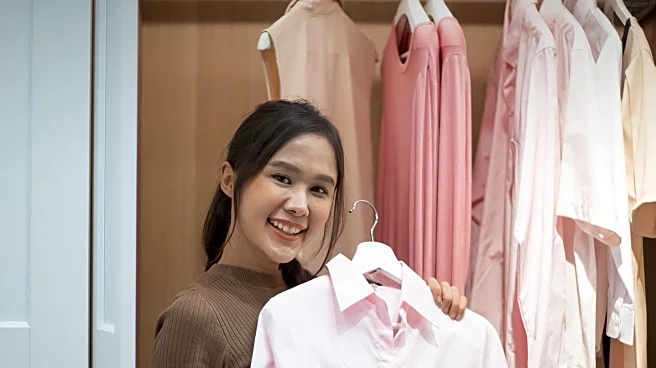What's Happening?
Bottomless Closet, a New York City-based organization, has been supporting women in need for over 25 years by providing career advice, clothing donations, and a sense of community. Executive Director Melissa Norden emphasizes the personal impact of the organization, having experienced job loss herself. The initiative helps women who have faced challenges such as homelessness, substance abuse, and incarceration. Through styling sessions, mock interviews, and clothing donations, Bottomless Closet aims to boost women's confidence and help them integrate into professional environments. Clients like Kamari Tuitt have successfully secured employment after engaging with the organization.
Why It's Important?
Bottomless Closet plays a crucial role in empowering women who are striving to re-enter the workforce, particularly those who have faced significant personal challenges. By providing not only material support but also emotional and community backing, the organization helps women regain confidence and self-worth. This empowerment can lead to increased economic independence and stability for these women, contributing positively to society by reducing unemployment and dependency on social services. The initiative also highlights the importance of community support and volunteerism in addressing social issues.
What's Next?
Bottomless Closet continues to seek support from the community through clothing donations, volunteer efforts, and financial contributions. The organization aims to expand its reach and impact, helping more women transition into the workforce. As more women gain employment, the ripple effect could lead to broader societal benefits, including reduced poverty rates and enhanced community development. Stakeholders such as local businesses and policymakers may take interest in supporting or replicating such initiatives to further address workforce re-entry challenges.
Beyond the Headlines
The work of Bottomless Closet underscores the ethical and social responsibility of supporting marginalized groups in society. It raises awareness about the barriers women face in achieving economic independence and the transformative power of community-driven initiatives. The organization's model could inspire similar programs nationwide, fostering a culture of inclusivity and support for those overcoming adversity.









